
АПЛѕ»ъёЈАыЙз Marine Field Station technician David Ambrose (Marine Science
’14) records data from a recovered ghost trap during a . (Photo credit Susan Allen).
The estimates 640,000 metric tonnes of fishing gear is abandoned, lost, or discarded globally each year. This invisible “ghost” fleet may continue to fish into the future after going missing. Because larger ocean basins tend to contain proportionally higher amounts of lost gear, local fishers may feel that ghost fishing is unimportant in small coastal systems that distribute fewer licenses and generate lower profits. However, recent work in a network of southern New Jersey coastal bays is proving otherwise.
A one-time investment in a single next generation crabber (who remains active in the system for roughly 20 years) has the potential to prevent more than 800 new ghost traps from joining the invisible global fishing fleet.
Over the past five years, АПЛѕ»ъёЈАыЙз scientists, undergraduate students, and community volunteers have engaged New Jersey commercial crabbers to break the cycle of ghost crab trap loss over 36 kilometers of coastline from the Mullica River–Great Bay Estuary to Wildwood, New Jersey. While small relative to the Gulf of Mexico or Chesapeake Bay, these bays and rivers account for roughly 42 percent of New Jersey’s $10.5 million blue crab fishery. To date, more than 2000 items of ghost fishing gear have been removed off-season through these efforts, supplemented by more than 200 in-season recoveries using low cost sonars to prevent future gear build-up. Direct and indirect economic benefits (recovery pay, returned gear) to commercial industry partners has exceeded $65,000. Successful knowledge transfer of this work to other communities has led to similar projects in Barnegat Bay, N.J., Cape May, N.J. and Delaware Bay, Del.
One critical gap in this work has been the recruitment of “next generation” stakeholders as future stewards for rebuilt coastal resources. Gear removal in New Jersey coastal bays has relied almost exclusively on the institutional knowledge and active participation of older generation commercial crabbers. In the northeastern United States, barriers such as economics, complex regulations, and generational attitudes while eroding institutional knowledge. A unique opportunity exists in New Jersey to bridge this generational gap through direct peer-to-peer mentoring, financial assistance during the off-season, and gear loss prevention.
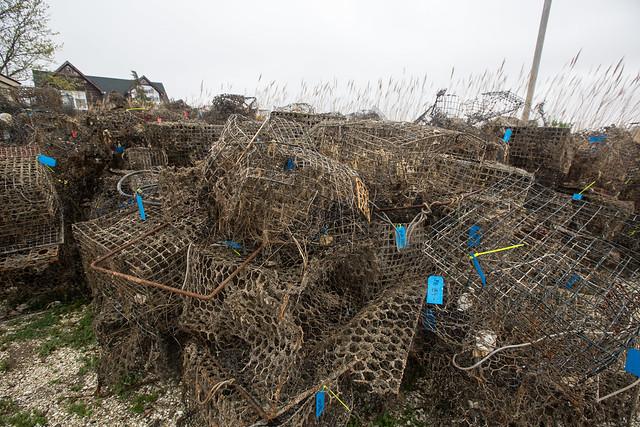
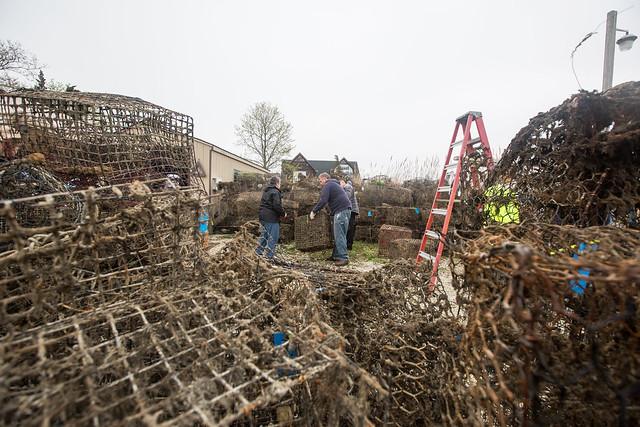

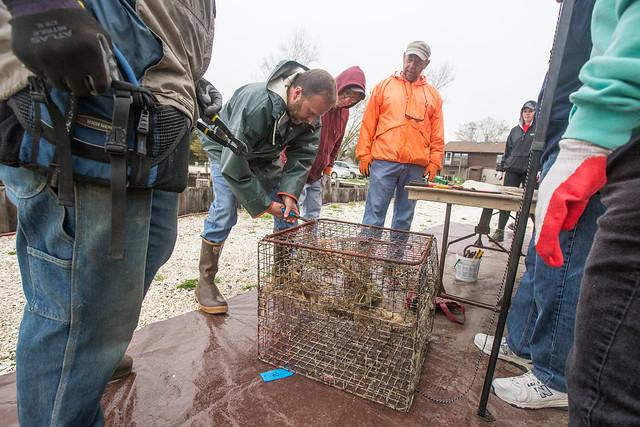
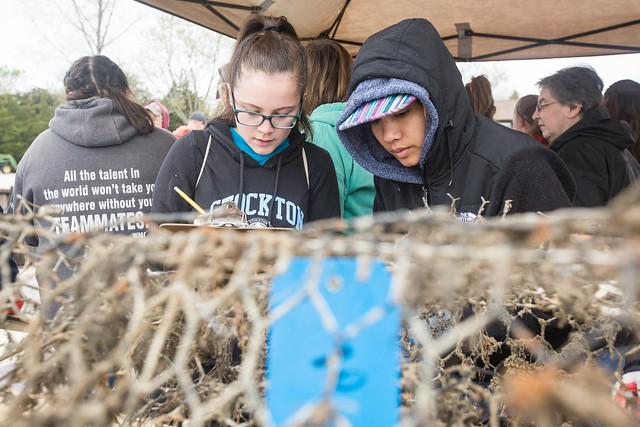
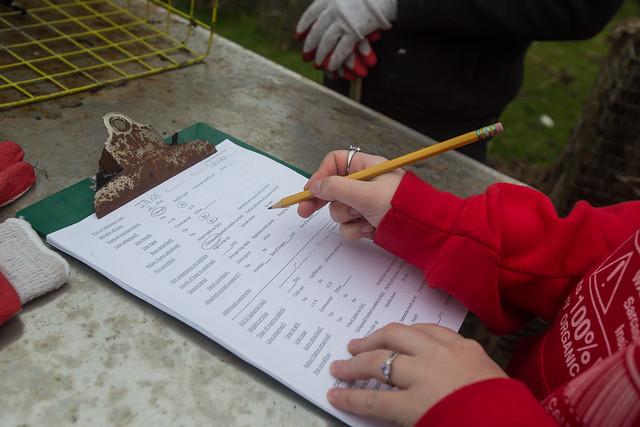
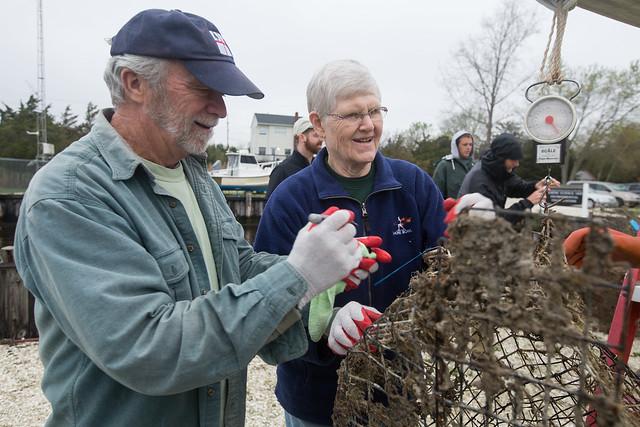
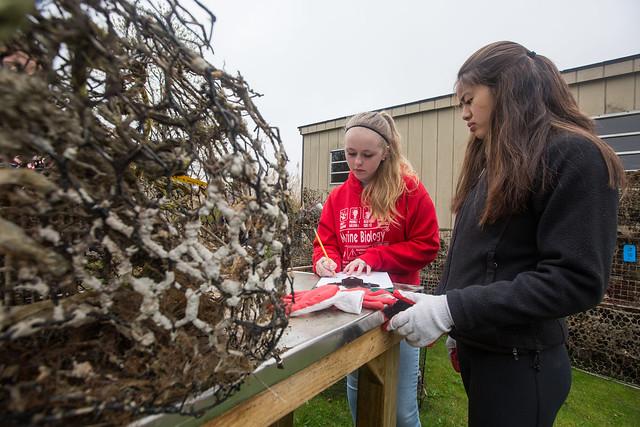
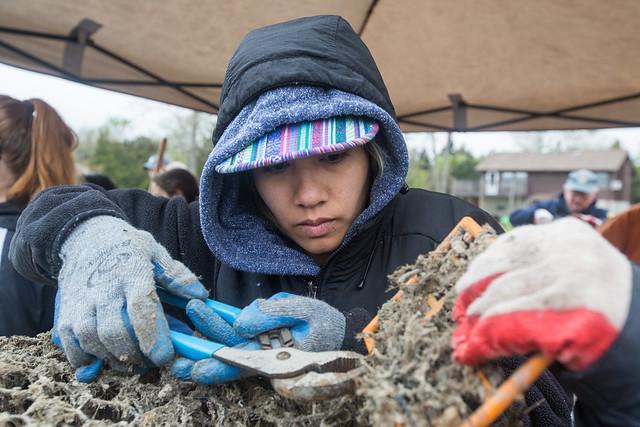
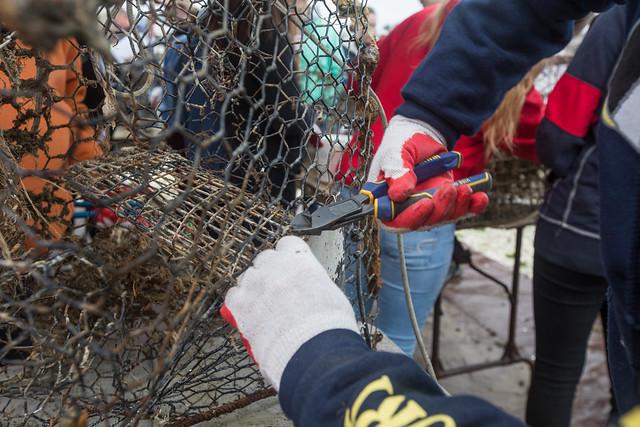
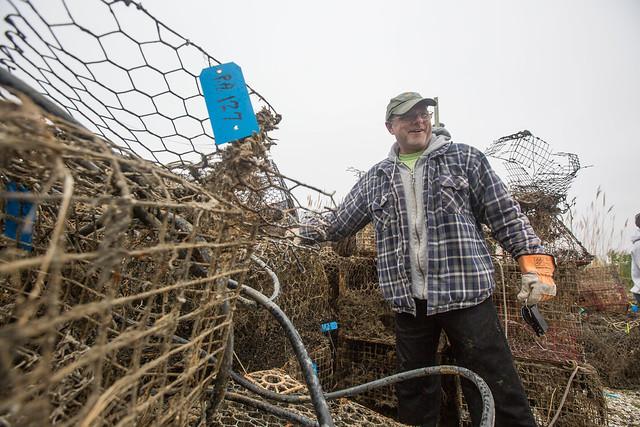
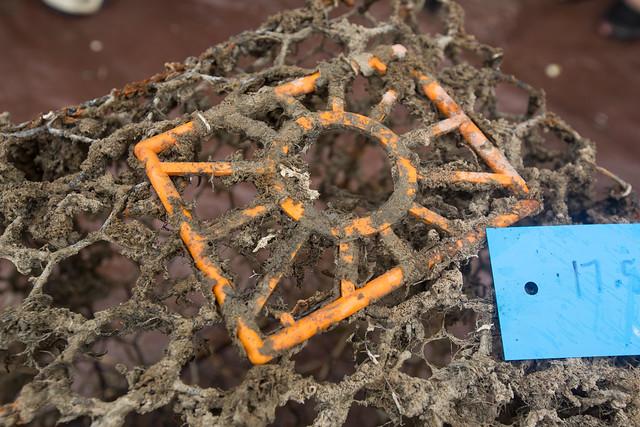
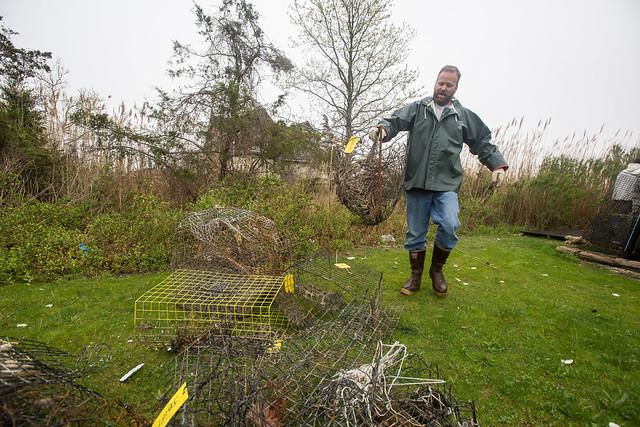
A three-year award from the to АПЛѕ»ъёЈАыЙз is helping to make this vision a reality. The project pairs next generation southern New Jersey commercial crabbers with mentors from previously funded work to identify and remove ghost crab traps off-season from three sources: data from previous projects, new sonar surveys in areas of known loss, and unmanned aerial vehicle (UAV) mapping in very shallow bays. Experimental work in Absecon Bay, N.J. indicates UAV technology may provide a cost-effective means of mapping ghost fishing gear. АПЛѕ»ъёЈАыЙз undergraduate students will have opportunities to participate directly in the project through coursework (MARS 3307 Fisheries Science & Management) as well as independent research.
Three year award from NOAA Marine Debris Removal Program pairs emerging community leaders and technology for fisheries success. Photo credit: Jessica Peoples
Ultimately, peer-to-peer mentoring will pass along recovery techniques that can be used in-season to immediately retrieve lost traps using low cost sonars and simple grapple systems. Participating crabbers in the Mullica River–Great Bay Estuary typically lose 40 traps per season through vessel traffic and late-season storms. A one-time investment in a single next generation crabber (who remains active in the system for roughly 20 years) has the potential to prevent more than 800 new ghost traps from joining the invisible global fishing fleet. Combined, the above efforts restore habitat while rewarding successful stewardship by future industry leaders and stakeholders alike.
For more information about industry participation, please contact: Steve Evert, АПЛѕ»ъёЈАыЙз Marine Field Station, 609-652-4486.
Additional reading and information:, .
Special thanks: Tom Barry, Jason Rolfe, Jessica Conway, Karen and Warren Unkert, Phil Andersen, Nathan Robinson, Elizabeth Zimmermann, David Ambrose, Kaitlin Gannon.



